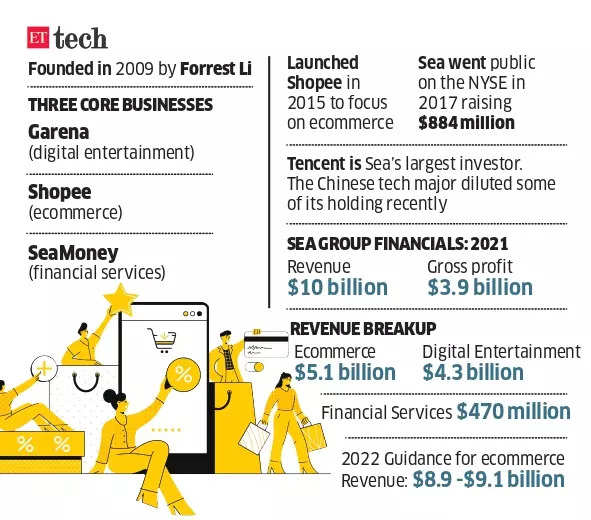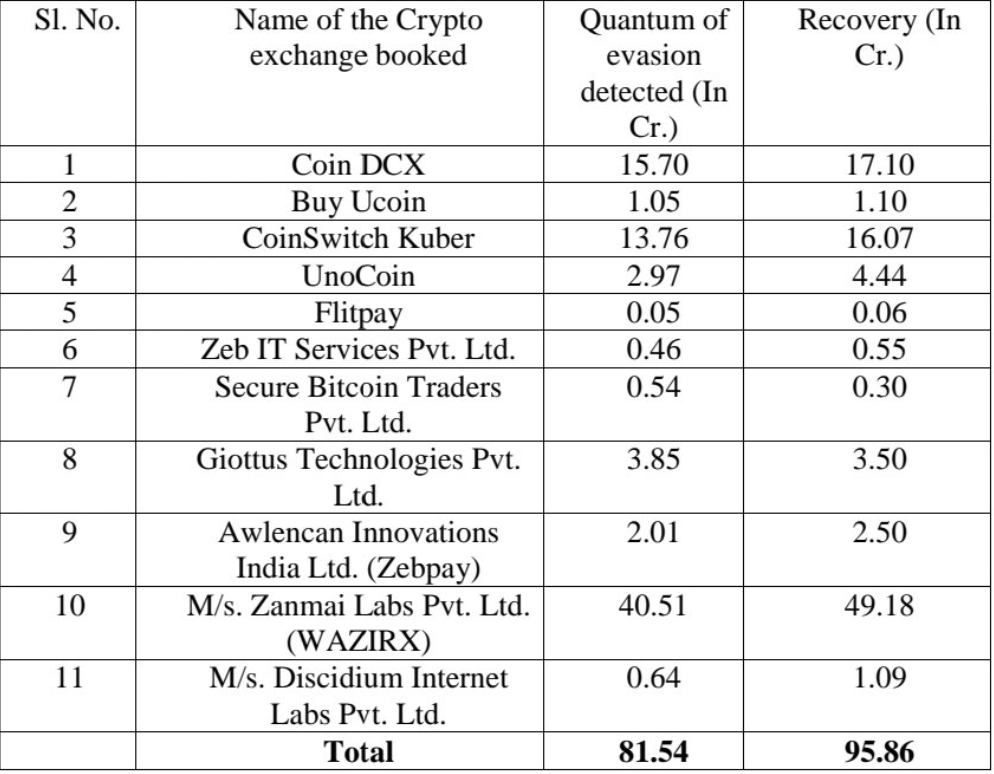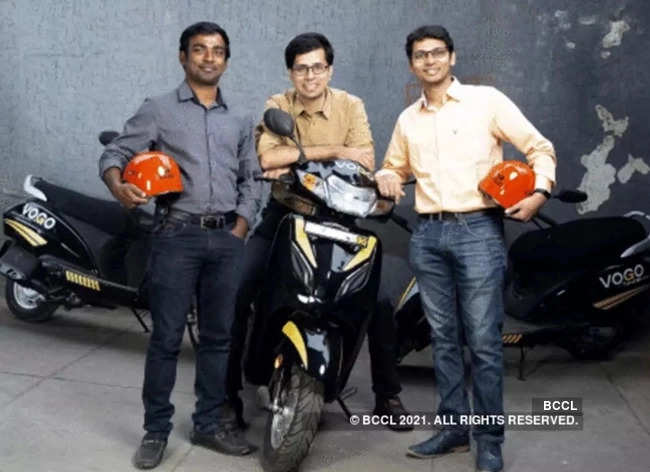Credit: Giphy
Also in this letter:
■ Eleven crypto exchanges evaded Rs 81.54 crore GST: govt
■ Chalo acquires shared mobility startup Vogo
■ Apple to cut iPhone, AirPods output as demand slows
Singapore’s ecommerce major Shopee suddenly decides to exit India

Shopee, the ecommerce arm of Singapore conglomerate Sea Ltd, has told its team in India that it will cease to operate in the country on March 29. It made the announcement during a company-wide town hall on March 28, three sources told us. The company has also told merchants who sell on its platform that it is shutting down in India.
Shopee informed its India sellers that services related to payments, refunds, returns and disputes will remain operational until May 30. Existing orders would also be shipped and delivered as per the process, it said.
The etailer has been competing with the likes of Meesho, Flipkart and Amazon India, especially at the lower end of the ecommerce market.
Official reason: A Shopee spokesperson told us the company decided to shut down in India “in view of global market uncertainties”.
Yes, but: Shopee’s exit comes soon after the Indian government banned the mobile game Free Fire, owned by Shopee’s parent firm Sea Ltd, as part of its crackdown on Chinese apps. While Sea is based in Singapore, it has come under the scanner for its alleged Chinese links, including its investment from Tencent.

The company has lost over $16 billion in market capitalisation since India banned Free Fire in February.
Trader troubles: In addition, trader associations such as Confederation of All India Traders (CAIT) had complained to the government about Shopee, accusing it of having Chinese investors and not adhering to Indian rules. CAIT also approached the Competition Commission of India (CCI), accusing Shopee of predatory pricing. But the CCI recently dismissed the charges.
Praveen Khandelwal, CAIT’s secretary general, said he “welcomed” Shopee’s decision to exit India.
The decision to shut shop here is still surprising, since Shopee had aggressive plans for the India market and was offering heavy discounts to compete with ecommerce biggies.
The last time ecommerce firms exited India was in 2020, when the government began to clamp down on Chinese apps following border skirmishes that year. Shein, Club Factory and Romwe shut operations here.
Also Read: Club Factory, Shein, Romwe ‘selectively’ shipping orders
Shopee’s 2nd exit this year: Shopee shut down its operations in France on March 6, after setting foot in the country in October 2021 as part of its European push.
At the time, Shopee told Tech in Asia that this was a short-term, preliminary pilot, and the company had decided not to continue the service in France.
Shopee also has localised versions of its app in Spain and Poland, apart from Malaysia, Thailand, Taiwan, Indonesia, Vietnam and the Philippines.
Eleven Indian crypto exchanges evaded Rs 81.54 crore GST, govt says

The Central Goods and Services Tax (CGST) authority recovered Rs 95.86 crore from 11 crypto exchanges that collectively evaded Rs 81.54 crore in GST, minister of state for finance Pankaj Chaudhary said in a response to a question in the Lok Sabha on March 28.
Chaudhary said that while the government does not collect any data on cryptocurrency exchanges, the CGST had detected the GST evasion.
Details: His response named 11 crypto exchange companies, including CoinDCX, Buy Ucoin, CoinSwitch Kuber, Unocoin, WazirX and Zebpay. It showed WazirX evaded the highest amount of GST – Rs 40.51 crore – followed by CoinDCX (R 15.70 crore) and CoinSwitch Kuber (Rs 13.76 crore).

While GST evasion by crypto exchanges came to light in January, the extent of the evasion was previously unknown.
On January 4, we reported that several crypto selling platforms were being scrutinised for tax evasion. The platforms for their part said they were not clear about which tax rules applied to them.
Crypto tax passed amid protests: On March 25, the Lok Sabha approved the Finance Bill 2022, turning into law the new tax framework for crypto assets that finance minister Nirmala Sitharaman had proposed in her budget speech in February.
The tax framework was cleared over the protests of the crypto industry, which had asked the finance ministry earlier this month to either reduce or eliminate the 1% tax deducted at source (TDS) on all crypto transactions, terming it “unviable”.
Sumit Gupta, CEO of crypto exchange CoinDCX tweeted at the time: “By heavily taxing crypto, we’re not just demotivating people from investing in this asset class but also demotivating innovators and investors from building and investing in these businesses.”
Chalo acquires shared mobility startup Vogo in a share-swap deal

Vogo cofounders
Chalo, a mobile app that helps users track buses across cities and book tickets online, said it has acquired two-wheeler shared mobility startup Vogo in what is a significant consolidation move. A person aware of the matter said the deal was a share-swap between the companies and did not involve any cash payout.
ET was the first to report about the potential acquisition on November 13 last year.
Deal details: As a part of the acquisition, Vogo will switch to electric vehicles across its fleet and expand beyond two-wheelers to offer other types of EVs to suit market needs, the company said in a statement.
Vogo will continue to be known by the same brand name. Its founders Anand Ayyadurai and Padmanabhan Balakrishnan, and the rest of the Vogo team will move to Chalo.
- Ayyadurai will step into a new leadership role at the Chalo group
- Padmanabhan, previously Vogo’s chief operating officer, will now serve as chief executive officer
- Abhimanyu Goyal, who was vice-president, engineering, will be elevated to chief technology officer
- Sharath Parameswaran, vice-president, operations and growth, will be made chief business officer
Mobility’s bumpy ride: The pandemic delivered a body blow to the entire mobility sector. Before Covid, companies like Vogo, Bounce and Yulu had been at the forefront of shared mobility in the two-wheeler segment. Bounce’s revenue from the shared mobility business shrank 83% in FY21 amid the pandemic.
Pivot or perish: Bounce has since pivoted to making electric scooters by acquiring 22Motors last November. It could do so as it had raised $105 million from Accel Partners and B Capital at a $520-million valuation in January 2020, just before the pandemic hit. But Vogo lacked this financial muscle when the business went south.
Yulu, meanwhile, has shifted its focus to getting food delivery executives to use its electric bikes, which do not require a driving licence. Yulu’s cofounder Amit Gupta told us in February that after the second wave, about 60% of the company’s revenue has been coming from the delivery workforce. He expects this revenue share to go up to 80% by the end of the year.
ETtech Done Deals

■ Wealth management platform IndMoney has raised an additional $11 million as a part of its ongoing funding round, led by Singapore-based Sixteenth Street Capital. With this, the company has closed its ongoing fundraise at $86 million, valuing it at $650 million post-money.
■ Ahmedabad-based edtech company Saarthi Pedagogy has raised Rs 16 crore in funding round led by Pinnacle Investments. The funds will be used for product enhancement, ramping up the technology team, content creation and expanding sales coverage, the company said.
■ Vivriti Capital, a mid-market lender, has raised $55 million (around Rs 400 crore) from some of its existing investors, Lightrock India and Creation Investments in a new funding round. The funds will be used for business expansion, and technology for acquisitions, product delivery and portfolio management.
■ FairPlum, which operates food brands, has raised $2 million in a round led by Unicorn India Ventures. A clutch of angel investors including Vivek Sirohi, vice president, R&D, Unilever; Amith Agarwal, cofounder and CEO at Agri-Bazaar; and the Dinshaw family office also participated in the round.
Apple to cut iPhone, AirPods output as demand slows

Apple Inc is planning to lower iPhone and AirPod production due to a demand slowdown caused by the Ukraine crisis and rising inflation, the Nikkei newspaper reported on Monday.
Taking a bite out of Apple: The company plans to produce 20% fewer iPhone SEs — or about two million to three million units — next quarter than originally planned, the report said. It added that Apple has also reduced 2022 orders for AirPods by more than 10 million units.
Smartphone demand falls: The news of weaker demand mirrors forecasts from analysts who have warned that Covid-19 lockdowns in Chinese cities and a surge in inflation due to the Ukraine conflict could hurt smartphone demand this year.
- Apple in particular faces challenges from the lack of a design upgrade for the latest SE and a $30 increase in its price from the 2020 model, analysts said.
Apple is expected to launch a brand new iPhone lineup later this year, but analysts said it was too early to forecast any impact on the upcoming range.
Today’s ETtech Top 5 newsletter was curated by Arun Padmanabhan in New Delhi and Zaheer Merchant in Mumbai. Graphics and illustrations by Rahul Awasthi.
























